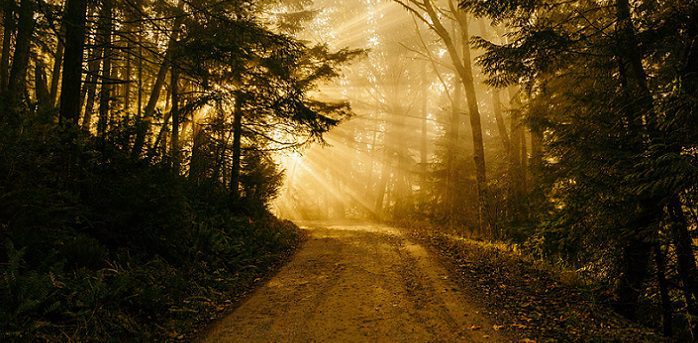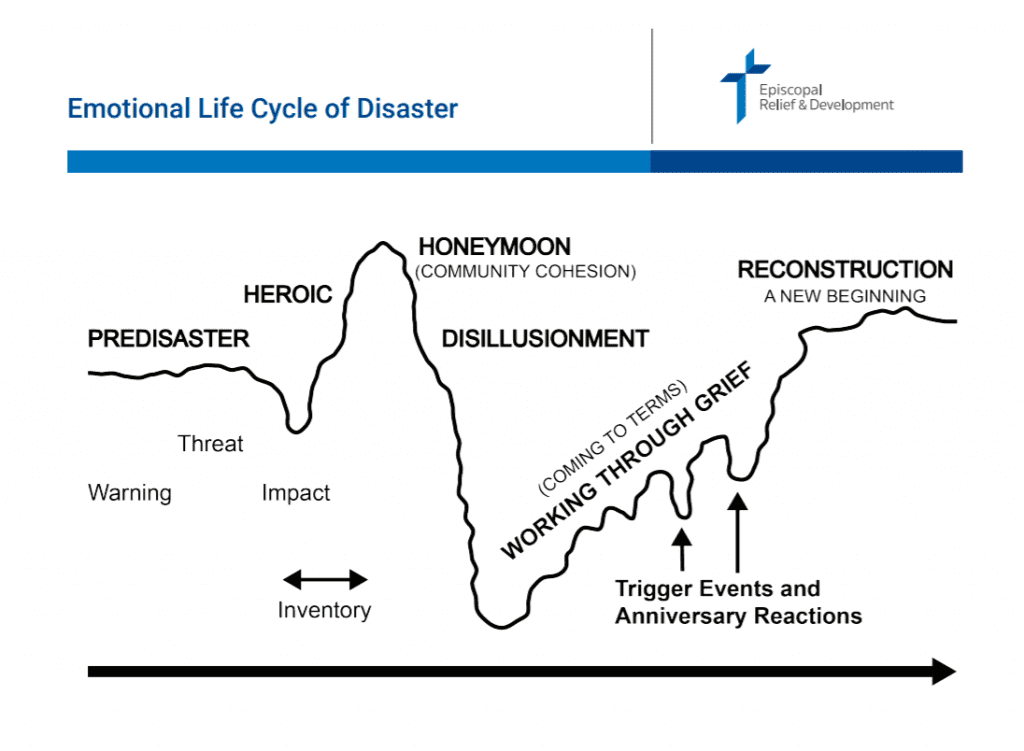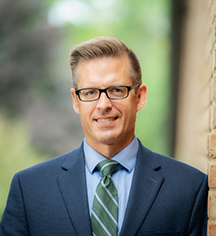Many of us are vacillating between feeling overwhelmed, energized, hopeful, anxious, and fearful in this moment of crisis brought on by the pandemic. We know the world has changed, but we aren’t sure what to expect in the coming days or months. The public health and financial experts can only make guesses and projections in the absence of good data on what will unfold. Yet the emotional process taking place has precedents.
I’ve found a chart created by Episcopal Relief and Development to be particularly illuminating. It is based on their decades of experience working in disaster zones. The chart shows the emotional process a community and its members often take through a disaster.
Disasters are typically preceded by a warning stage of anticipation and preparation. This gives way when the disaster strikes to a phase of heroic engagement. People rally, pull together, and make sacrifices for each other, and the community discovers a new sense of cohesion and focus. We’ve seen much of this in the early weeks of COVID-19 hitting the U.S.
However, this eventually gives way to a period of disillusionment, when loss and grief become primary and undeniable forces. We are no longer steeling ourselves for a looming crisis or rallying together in a honeymoon phase, but working through the long unraveling of what was and trying to figure out what we have left. Disillusionment is the loss of expectations, dreams, and hopes. It can cut our feeling of security out from underneath us, leaving us wobbly and frail.
Working through the grief and loss is a ragged process of fits and starts, good days and bad days. It involves trying to adjust to a new normal. While disillusionment can happen quickly (like the stock market dropping 30% in only a few days), there is no way to shortcut the grief process. People take that journey at different paces.
Eventually, on the other side, there is a time of reconstruction, when the community rebuilds its life out of the ruins of what was. For many churches, the future will look very different than before this crisis. COVID-19 will accelerate (by years even) trends of institutional fragilization and demise. Yet there will be a time to build, to discover new forms for Christian community life and witness amidst the collapse of the old.
Don’t be surprised if you see evidence of this emotional journey in yourself, in your congregation, and in your neighborhood. It may play out somewhat differently for each of us, but I’m struck by how it traces the arc of Holy Week, which I suspect will be particularly poignant this year. Even if we celebrate Holy Week in physical isolation, we will be reminded how God joins us in this painful journey in the death and resurrection of Christ.
Photo by Patrick Fore on Unsplash


